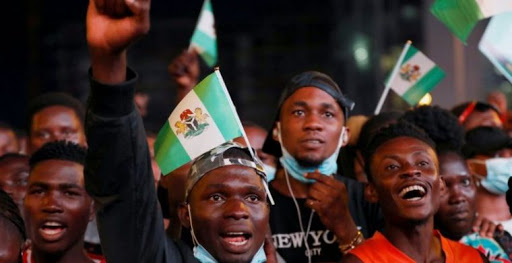The masses are at the base of the socio-economic pyramid, but they form almost 60 to 70 per cent of Nigeria’s population. Though characterised by low incomes, ignorance and unhygienic habitations, their number is supposed to provide them with a central status in the democratic arrangement.
Their well-being and welfare should have been given the required attention; their needs and aspirations should have been on the front burner of policy making, their concerns and worries should have been given due consideration in the scheme of governance; as well as their happiness and emotions respected by any democratically elected government. That is because democracy is the government of the people, for the people and by the people.
- Buhari condemns murder of Kaduna Catholic priest
- NLC proposed protest unconstitutional, a recipe for anarchy — FG
So, what is visibly observable is that the commoners are neglected and relegated to the back bench of governance despite their majority.
This is the result of the economic policies formulated and implemented in this nation that tend to make the rich richer and the poor poorer. The scale of measuring the well-being of the national economy is the Gross Domestic Product (GDP), which is grossly imbalanced and inadequate to capture the economic realities of the commoners. They only feel the impact of negative growth of the GDP through hardship, inflation and stringent austerity measures taken by the government.
The major sectors that directly affect them, such as education, public health, security and agriculture are all in perpetual jeopardy. The education system is in total ruin, public schools in highest level of dilapidation, without adequate infrastructure, manpower and teaching/learning materials.
The health institutions and facilities are just there by name without the requisite personnel, facilities and policy framework to cater for the needs of the masses.
The number of policemen to provide security in the communities is highly insufficient, because most of them are deployed to guard very important personalities (VIPs), which form only a negligible proportion of the population.
The commoner is left to the mercy of kidnappers, robbers and other criminals. However, the agricultural basic implements and inputs such as low-volume sprayers, power tillers, fertilisers, chemical herbicides, pesticides and insecticides are beyond the reach of the peasant farmers.
That is why the safety, security and living standards of the poor are deteriorating by the day.
The most disheartening reality is that those that should care show no iota of concern to ameliorate the situation. They always reserve the better part of their time, stuffing the masses with smouldering hatred, envy, malice and jealousy based on religious, regional, tribal, ethnic and dialectal sentiments so as to achieve their selfish and egocentric goals.
The children of the poor, who are intentionally and deliberately denied access to quality education and gainful employment, are always a ready cannon fodder for any crisis that might have been engineered and brewed to distract and divert their attention or focus from their rights in the democratic arrangement.
They are used as political thugs to unleash mayhem and wreak havoc on their fellow commoners for the megalomaniac and kleptomaniac tendencies of the rich.
Another political season is here, and another round of elections is around the corner, so the earlier the commoners understand their situation, the better. They should hastily go and secure their voter’s cards and use them to elevate themselves from the periphery to the centre stage of the nation’s democracy.
They should use their numbers to change their narrative and improve their standard of living. This can be achieved by voting into power those they can trust, based on their credibility, competence, commitment and concern to their plights.
They should ascertain the contestants’ level of understanding of their predicaments, capacity to proffer practicable and workable remedies to their problems as well as the level of commitment to strictly and religiously implement the solutions for the improvement of the lives of the electorate.
They should learn to speak out and protest whenever they observe any breach of trust or betrayal by their elected officials. They should also learn to assess and evaluate their performance in office and hold them to their campaign promises or party manifestoes.
My people say that, “a blind man doesn’t know that he is seen until he is touched.”
Usman Aliyu Elnafaty, DP2I, Fadamar Jaji, Behind Federal Secretariat, Bauchi

 Join Daily Trust WhatsApp Community For Quick Access To News and Happenings Around You.
Join Daily Trust WhatsApp Community For Quick Access To News and Happenings Around You.


